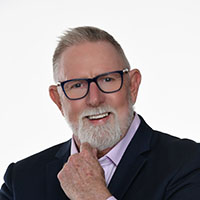Nestle has set ambitious targets for decarbonising its entire global supply chain. It’s a tough challenge – The supply chain is long and complex and includes everything from agriculture to manufacturing to warehousing to distribution to the end-user and much more.
And its not just the supply chain: Nestle itself is enormous with over 339,00 employees, 442 factories in 86 countries and a world-wide distribution networks providing over $130b in sales. Decarbonising is no easy task.
In this podcast, James chats with Margaret Stuart to find out how the Nestle supply chain is being redesigned and improved. And how Nestle Oceania is achieving its targets, ahead of time.
In a fascinating conversation, Margaret and James discuss:
James and Margaret then have a quick chat about ESG and Modern Day Slavery and what it means for small business suppliers.
Then James finds out why it’s a good idea to keep eating Kit Kats.
Don’t miss this episode: hear first-hand the story of the decarbonising of the supply chain- direct from a current global supply chain implementor. A fascinating conversation.

After a long career in multiple aspects of supply chain management, corporate training and business advisory, James brings a business improvement mindset to his role as General Manager of Supply Chain Resilience for Ai Group. A skilled communicator and adviser, James has been involved with Oil & Gas, the Defence industry and supply chain across the board for over 40 years.
James has a Masters degree in International Management and a partially completed Doctor of Business Administration. He says he'll get around to finishing it when he retires.
With almost 300 staff and networks of relationships that extend beyond borders (domestic and international) we have the resources and expertise to meet the changing needs of our membership. We provide the practical information, advice and assistance you need to run your business.